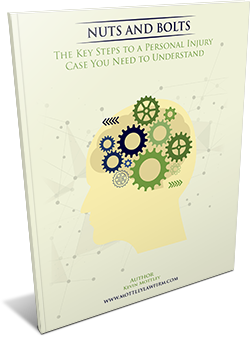Filing a Personal Injury Case in Court
If negotiations are unsuccessful, or if the insurer's offer is less than the value of your claim, you can file a lawsuit. Litigation is a more formal and structured process that involves presenting your case before a judge and possibly a jury. This route is often necessary to ensure fair compensation for your injuries and losses. A Virginia personal injury lawyer can help guide you through the litigation process.
Filing the Complaint
Your attorney files a legal document known as a complaint outlining the details of the accident, the damages you suffered, and the legal basis for your claim. The defendant then has the opportunity to respond to the complaint.
Discovery
This phase involves both parties collecting evidence, questioning witnesses, and sharing relevant information. Although you may feel like this was already done during the claims process, it may be necessary to refine so each side understands the strengths and weaknesses of their case.
Pre-trial Motions
Either party can file motions asking the court to make specific rulings on issues such as evidence admissibility or case dismissal.
Negotiations
Even during the litigation process, settlement negotiations can continue. Many cases are resolved before going to court, as both parties may find common ground as the trial date approaches.
Trial
If a settlement isn’t reached, the case proceeds to trial. Both sides present their arguments, evidence, and witnesses to a judge or jury. A verdict is then reached based on the submitted information.
Appeals
If either party is dissatisfied with the trial’s outcome, they may appeal the decision, seeking a review by a higher court.
Role of a Virginia Personal Injury Attorney
Throughout the legal process, a Virginia personal injury attorney plays a crucial role in protecting your rights and advocating for your best interests. Personal injury lawyers handle a range of cases, such as car accidents, truck accidents, slip and fall accidents, dog bites, and more. Navigating the complexities of accident lawsuits requires extensive knowledge, and an experienced attorney can provide the following benefits:
Case Evaluation
They’ll assess the strength of your case, estimate its value, and advise you on the best course of action, whether negotiating with the insurance company or pursuing litigation.
Negotiation Skills
Attorneys understand the tactics used by insurers and can help you avoid accepting a lowball offer.
Legal Procedures
Most of us don’t have the skills to file legal documents, compile with Virginia’s statute of limitations, and understand courtroom protocols. An attorney ensures that all necessary paperwork is filed accurately and on time. In Virginia, you have two years from the date of the incident to file a personal injury lawsuit to recover damages.
Evidence Collection
Experienced lawyers have the resources to gather evidence, including medical records, police reports, and expert testimonies, to build a strong case.
Trial Representation
If your case goes to court, a trial-ready attorney advocates on your behalf, presents evidence, cross-examines witnesses, and makes compelling arguments to the judge or jury.



